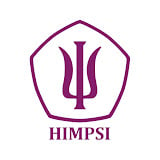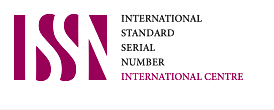Islamic Work Ethic Dan Learning Agilty Pekerja Lembaga Zakat
Abstract
Tujuan dari penelitian ini adalah untuk mengetahui hubungan antara Islamic work ethic dan learning agilty pada pekerja lembaga zakat sebagai tanggung jawab dan kesiapan dalam menghadapi situasi pekerjaan dalam era yang serba cepat ini. Responden dalam penelitian ini sebanyak 78 pekerja. Responden yang dijadikan sampel penelitian adalah secara menyeluruh dari level bawah hingga level atas, agar penelitian ini mampu mendapatkan gambaran seberapa besar karakter dari Islamic work ethic dengan 3 dimensi yaitu ekonomi, moral, dan sosial dan perilaku learning agility dengan 7 dimensi item yaitu Cognitive Perspective, Interpersonal Acumen, Change Alacrity, Drive to Excel, Self Insight, Feedback Responsiveness, Environmental Mindfulnes. Hasil dari penelitian ini menunjukan bahwa ada hubungan yang signifikan antara Islamic work ethic dengan learning agility, semakin tinggi Islamic work ethic seseorang maka akan semakin tinggi pula learning agility
Keywords
Full Text:
PDFReferences
Abbas Ali. (1988). Scaling an Islamic Work Ethic. The Journal of Social Psychology. Departement of Management Indiana University at South Bend.
Aida A. Aziz Ahmed Al-Arimi, Maslin Masrom, Nik Hasnaa Nik Mahmood. (2016). The moderating effect of Islamic work ethics on the relationship between knowledge management capabilities and organizational performance at the private higher education institutions in Oman. Journal of Theoritical and Applied Information Technology, Vol.94 No.2.
Ali, A. (1992). Islamic work ethic in Arabia. Journal of Psychology, 126(5), 507-20.
Ali, A.J.; & Al-Kazemi, A. (2007). Islamic work ethic in Kuwait. Cross Cultural Management: An International Journal, 14 (2), 93-104.
Ali, A.J.; & Al-Owaihan, A. (2008). Islamic work ethic: a critical review. Cross Cultural Management: An International Journal, 15 (1), 5-19.
Ali, Abbas J. (1992). The Islamic Work Ethic in Arabia. The Journal of Psychology,
Ali, J. A. (2005). Islamic Perspectives On Management And Organization. Edward Eglar Publishing, UK.
Awais Imam, Abdus Sattar Abbasi, Saima Muneer. (2013). The Impact of Islamic Work Ethics on Employee Performance: Testing Two Models of Personality X And Personality.
Awan Khurram Zafar, Akram Mehwish. (2012). The Relationship Between Islamic Work Ethics and Innovation Capability and Knowledge Sharing Plays Moderation Role. International Journal of Economics and Management Sciences, Vol. 1, No.8, pp. 34-48. Bidayatul Akmal Binti Mustafa Kamil, Novia Zahrah, Shamsul Huda
Binti Abdul Rani, Siti Norasyikin Binti Abdul Hamid. (2016). The relationship between Islamic work religiosity, Islamic work ethics and job performance. The European Proceedings of Social & Behavioural Science EpSBS, eISSN:2357-1330.
Dai, G., De Meuse, K. P., & Tang, K. Y. (2013). The Role of Learning Agility in Executive Career Success: The Results of Two Field Studies. Journal of Managerial Issues.
Dai, G., De Meuse, K. P., Clark, L. P., & Cross, J. (2011). Criterion- Related Validation Of The Choices Assessment: Findings From Two Recent Studies Tech. Minneapolis: Korn Ferry International.
De Meuse, K. P. (2017). Learning agility: Its evolution as a psychological constructand its empirical relationship to leader success. Consulting Psychology Journal: Practice and
Research, 69(4), 267.
De Meuse, K. P. (2019). A Meta- Analysis of the Relationship between Learning Agility and Leader Success. Journal of Organizational Psychology
De Meuse, K. P., Dai, G., & Hallenbeck, G. S. (2010). Learning agility: A construct whose time has come. Consulting Psychology Journal: Practice and Research, 62(2), 119.
De Meuse, K. P., Dai, G., Swisher, V. V., Eichinger, R. W., & Lombardo, M. M. (2012).
Leadership development: Exploring, clarifying, and expanding our understanding of learning agility. Industrial and Organizational
Psychology, 5(3), 280-286.
DeRue, D. S., Ashford, S. J., & Myers,
C. G. (2012). Learning agility: In search of conceptual clarity and theoretical grounding. Industrial and Organizational Psychology, 5(3), 258 279. Development, 14 (6), 26-34.
Hendryadi. (2018). Islamic Work Ethics (IWE): Konsep dan Tinjauan Penelitian. Journal of Manajemen Riset dan Bisnis (JRMB). Fakultas Ekonomi UNIAT, Vol 3, No.2;183-190.
Ibrahim, Azharsyah and Kamri, Nor ‘Azzah. (2013). Measuring the Islamic Work Ethics: An Alternative Approach, Conference Paper. Malaysia: International Convention on Islamic Management.
Marri, Muhammad Y.K., dkk. The Impact of Islamic Work Ethics on Job Satisfaction and Organizational Commitment: A study of Agriculture Sector of Pakistan. International Journal of Business and Behavioral Sciences.
Mitchinson, A., & Morris, R. (2012). Learning About Learning Agility. A White Paper.
Shankar, J. (2017). The Impact of Learning Agility On The Growth In Performance. HFMtalentindex Research. First edition.
DOI: http://dx.doi.org/10.22441/biopsikososial.v5i1.12334
Refbacks
- There are currently no refbacks.
Copyright (c) 2022 Biopsikososial : Jurnal Ilmiah Psikologi Fakultas Psikologi Universitas Mercubuana Jakarta
JBUMBand its articles is licensed under a Creative Commons Attribution-ShareAlike 4.0 International License.
Tim Editorial Office
JBUMB
Fakultas Psikologi, Universitas Mercu Buana
Jalan Meruya Selatan No. 1, Kembangan, Jakarta Barat, 11650, Indonesia
Phone: +6281318855243
Email: [email protected]
Website: https://publikasi.mercubuana.ac.id/index.php/biopsikososial/index

















